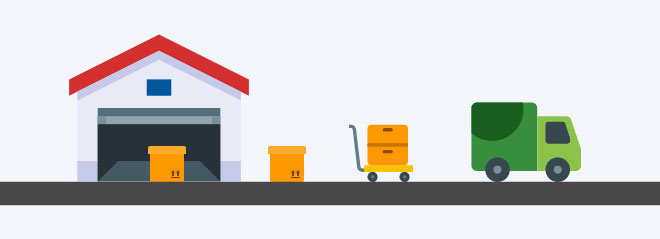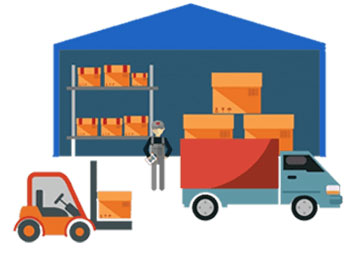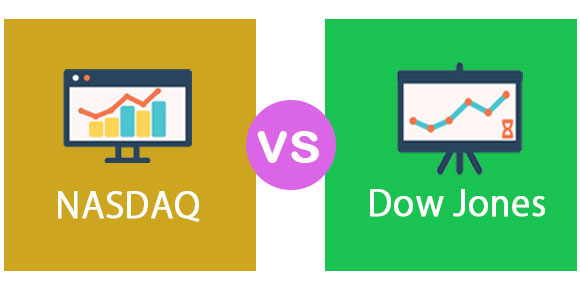Introduction
What is a wholesale trade? The retail wholesalers' total sales and stocks are calculated using the wholesale trade industry as an economic indicator—one of the elements of inventories and sales for firms in wholesale trade. The wholesale market only includes companies that sell to other companies, government institutions, and government agencies. The wholesale dealer stockpiles the goods, freeing up space in the manufacturer's stocks and encouraging higher output.
The job of the wholesaler benefits retailers as well because it enables speedy product purchases. Economies of scale benefit wholesalers since they may buy in larger quantities at lower prices. Most wholesalers sell their goods to small business owners, but a select handful also offers wholesale to other wholesalers. The typical wholesaler will only carry a limited number of goods. They can offer one or two variations of the same product to stores because they do not sell directly to consumers. Purchasing raw materials, supplies for production, and other products not used by consumers for businesses can also be a part of wholesale commerce.
Wholesale trading is seen as a transitional phase in distributing products and items. The people who sell or oversee the exchange for products to be resold to other merchants or wholesalers are known as wholesalers. Additionally, they can organize the sale or acquisition of supplies or raw materials required for manufacturing other long-lasting consumer goods.
How to Use Wholesale Trade Data?
Since wholesalers can provide inventory and sales information that may be a key indicator of the trends that consumers are experiencing, wholesale trade data can give investors an insider's view of the economy of consumers. Since manufacturing makes up a significant portion of Gross Domestic Product (GDP), wholesale-trade statistics can be a useful tool for monitoring the status of the economy.
Since corporate earnings often increase when production increases, this has a beneficial impact on share markets. However, the bond markets frequently support moderate growth to prevent inflation. If you are in charge of the procurement options offered by your organization, you must understand the wholesale commerce sector of the economy. Whether wholesaling is appropriate for a business will be easier if you are informed of the procedure.
Buying
The start of wholesale trading is the acquisition of items in quantity. The wholesaler can select the products it would like to provide at this phase. Examples of usual selections for wholesalers include materials, non-consumer durable goods, retail goods, and raw materials for production.
Storage

The wholesaler keeps the goods in a warehouse or other storage space, which makes it easier to supply the market all year long. Wholesalers can help producers with storage and distribution by storing their products. Small sellers can also make purchases that fit their demands and finances.
Selling
Because they sell largely to other businesses and organizations rather than consumers, wholesalers are typically B2B (business-to-business) organizations. To attract the attention of retailers, wholesalers create marketing campaigns and cultivate a sizable network of current and past clients. Effective wholesalers educate their clients on the advantages of wholesale trading by examining the cost savings. These initiatives are crucial for increasing consumer loyalty and encouraging them to make larger purchases.
Why Is Wholesale Trading Important?
Wholesalers ensure the supply chain is maintained so that corporate clients and everyday consumers may quickly get the goods they need. They establish connections between retailers and manufacturers, enabling the items to get to the final consumers. The makers would market and sell their products without wholesalers. Wholesalers assist merchants in meeting client requests even though they cannot connect directly with customers. Wholesale traders' distinct position within the hierarchy of the chain of distribution allows them to offer manufacturers vital information about market trends and the demand for their goods.
Wholesalers can determine what products are available and what the ramifications are for producers because they manage the distribution of commodities. Effective wholesalers can monitor consumer behavior in addition to offering manufacturers useful data that will enable them to enhance customer care. A continuous process of wholesaling is the process of establishing connections and networks. Retailers in a given industry or sector may contact wholesalers, who may offer supply agreements.

Conclusion
Since wholesalers' inventory and income statistics can be a key sign of changes in consumer behavior, wholesale-alternative record records give buyers the chance to conduct a more thorough analysis of the client's financial system. Only enterprises that provide to institutions, governments, and other businesses are regarded as wholesale change components. Wholesalers use rising artificial scarcity to maintain stable prices for goods and services. They restrict the availability of specific products rather than distributing goods rapidly, causing a surplus.
Costs stay consistent, and producers and other businesses engaged in distribution and manufacturing may turn a profit by preventing an oversupply of items that are available to the general market. Also, persuading a select few wholesalers to stock the product could help a company that is releasing a new product acquire traction in the market because wholesalers can become more powerful, and smaller stores can persuade them to carry the new product.




